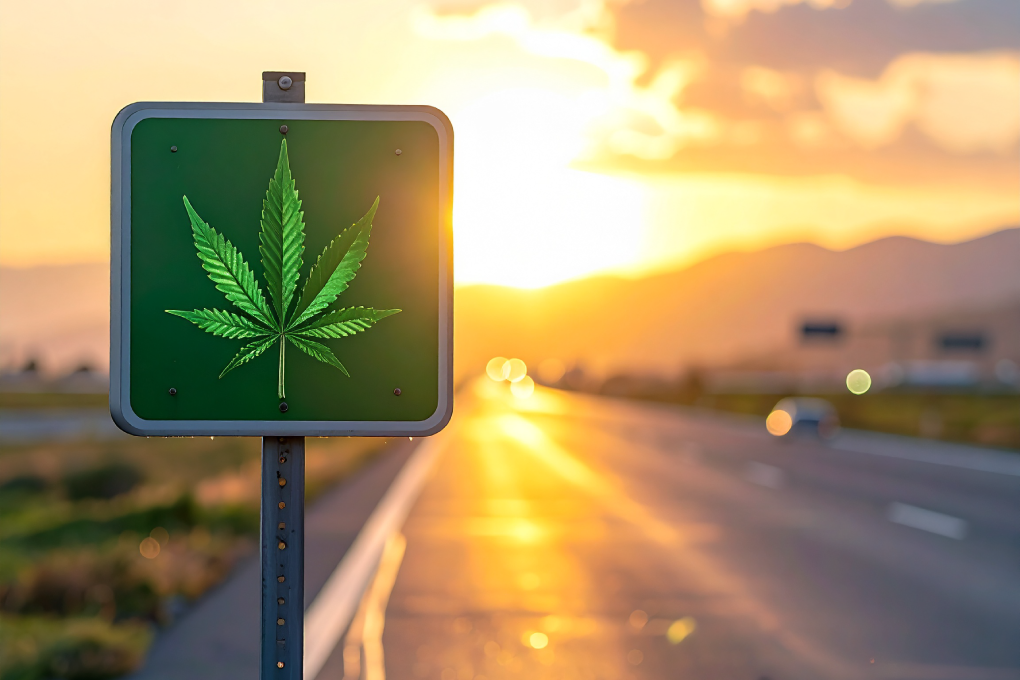




Traveling can be stressful enough on its own, and when you add cannabis into the mix, the rules, risks, and regulations become even more complicated. With cannabis laws continuing to evolve in 2025, it's more important than ever for consumers to understand how, when, and where it's legal to bring their favorite products along. Whether you're planning a road trip, flying to another state, or even considering international travel, knowing the do's and don'ts of traveling with cannabis can save you from unnecessary headaches — and potentially serious legal trouble.
The cannabis industry in the United States has grown dramatically, but legalization is still a patchwork. Some states allow recreational use, others allow only medical use, and some continue to prohibit cannabis entirely. On top of that, cannabis remains federally illegal. This means that while you may be following state laws, crossing state lines — or traveling by air — introduces federal jurisdiction, where different rules apply.
For international travel, the complexity increases. Countries vary widely in their cannabis laws, and carrying cannabis across international borders can result in extremely severe consequences, including jail time. In short: the rules are not universal, which is why staying educated and cautious is crucial.
While many risks exist, there are also safe, responsible ways to bring cannabis into your travel plans. Here are the key practices to follow in 2025:
Before you even pack, research the cannabis laws in the state or country you're traveling to. Even within the United States, regulations differ drastically from one jurisdiction to another. For example, some states allow recreational cannabis, but restrict how much you can possess or where you can use it. Others may permit medical use only, requiring you to show proof of a valid medical card.
Tip: Always check official state or government websites to ensure you're relying on accurate and current information.
If cannabis is legal where you're traveling, make sure your products are stored in their original, sealed packaging with labels intact. This not only helps prove that the product was purchased legally, but also prevents unnecessary suspicion. Loose buds in a plastic baggie can look far more questionable than properly labeled, sealed products.
If you're unsure about local laws or worried about carrying THC products, consider traveling with hemp-derived CBD products instead. Under the 2018 Farm Bill, hemp-derived CBD (with less than 0.3% THC) is federally legal in the United States, making it a safer option for most domestic travel. However, always double-check local laws, as some states impose restrictions even on CBD.
Traveling with large amounts of cannabis increases both suspicion and potential penalties. If you must bring cannabis with you, carry only what you realistically need for your trip. This aligns with possession limits in many legal states, which often cap recreational cannabis at one ounce of flower or 5–10 grams of concentrate.
Even in legal states, public consumption laws often prohibit smoking in parks, sidewalks, or other public areas. Plan ahead by booking cannabis-friendly accommodations or sticking to private property. Being discreet not only keeps you safe from legal issues but also shows respect to those around you who may not consume.
Just as important as knowing what to do is knowing what not to do. These missteps are the most common ways cannabis travelers get into trouble:
Even if cannabis is legal in both your starting point and destination, carrying cannabis across state lines is still a federal offense. For example, driving from Colorado to California with cannabis in your car is technically illegal. While enforcement can vary, the risk is very real, and penalties can include fines or even criminal charges.
Airports fall under federal jurisdiction, which means TSA officers must enforce federal law. While some airports in legal states have loosened their policies — even providing “amnesty boxes” for travelers to dispose of cannabis before security — carrying cannabis onto a plane is still prohibited. TSA may call local law enforcement if they find cannabis in your bag, even if you're flying between two legal states.
International travel with cannabis is highly risky. Even if you're traveling between two countries where cannabis is legal, transporting it across international borders is almost always forbidden. Penalties in some countries can be severe, ranging from heavy fines to long prison sentences. If you're traveling abroad, it's safest to leave cannabis at home and explore local, legal options at your destination — if available.
Driving under the influence of cannabis is illegal in every state and treated similarly to drunk driving. Having open cannabis containers in your car can also result in fines or legal trouble. Always store cannabis in the trunk or a locked glove compartment if you're transporting it within state lines (and where it's legal).
Sharing cannabis with friends or family might seem harmless, but it can create complications, especially if they're underage, not medical patients, or you're in a location where cannabis is not permitted. Always ensure that everyone consuming is legally allowed to do so and that the environment is appropriate for consumption.
If traveling with cannabis seems overwhelming, consider these alternatives:
If you've managed to travel legally with cannabis, or purchased some at your destination, keep these tips in mind for safe and responsible use:
Traveling with cannabis in 2025 is easier than it once was, but it still comes with plenty of risks. By knowing the laws, avoiding federal boundaries, and sticking to safe, responsible practices, you can enjoy cannabis while on the go without ruining your trip. Remember: when in doubt, leave it out — and purchase legally at your destination instead. That way, you'll avoid unnecessary complications and enjoy your travels worry-free.
(Sources: Transportation Security Administration (TSA) | NORML – Travel and Possession Laws | U.S. Customs and Border Protection | State Government Cannabis Regulations)